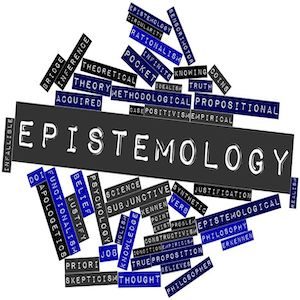
“One of the saddest lessons of history is this,” Dr. Carl Sagan once wrote, “If we’ve been bamboozled long enough, we tend to reject any evidence of the bamboozle. We’re no longer interested in finding out the truth. The bamboozle has captured us. It’s simply too painful to acknowledge, even to ourselves, that we’ve been taken. Once you give a charlatan power over you, you almost never get it back.”
The idea that human gullibility is our fatal psychological flaw is certainly relevant in the current zeitgeist. In this age of fake news, custom-built media bubbles, and the ability to curate one’s own reality, the question of epistemology — how we know what we know — is vital. But are we actually that gullible? One cognitive scientist, Hugo Mercier of the Jean Nicod Institute in Paris, believes that we’re actually not. In the book, Not Born Yesterday: The Science of Who We Trust and What We Believe, out this year, he argues that the problem is not that we’re too gullible, but that we think we are too gullible. In an Interview in Leapsmag, he argues that, from an evolutionary perspective, we are hard-wired for rational skepticism, and just need to exercise our epistemic muscles, instead of believing that we are victims of our environment or epoch. The jury box, of course, is one place to exercise those muscles, and in this post I will share some thoughts on that.
Sometimes, You Want Epistemological Vigilance
Sometimes the simpler story favors your side. If there is the kind of ‘2 plus 2’ relationship that jurors are likely to see on your side of the courtroom, then you really don’t need to ask them to overthink it. But in other cases, often but not always on the defense side of the bar, you want jurors who are able to resist the first or easiest conclusion. You want them to be skeptical of their first impressions from the story they are hearing from the other side. In those cases, you will want to try to select jurors who are more able and willing to be vigilant, and to prime your resulting jury on how to exercise that vigilance.
Promoting an Epistemically Vigilant Jury
I have written in the past that one personal trait that often determines how much a juror wants to dig into the detail versus just ‘go with the flow’ during deliberations is called “Need for Cognition.” It is a measurable personality trait that is based on how much an individual seeks out and enjoys effortful thinking.
But once you have picked the jury, there are also ways to encourage or prime them toward greater levels of vigilance regarding what they seek out and accept as true. Here are a few ways:
Emphasize the Stakes. For the parties, whether the damages that are sought or defended against are high, moderate, or low, the trial is a tremendous deal and often a once in a lifetime moment. Reminding jurors of these stakes can help to encourage a less casual focus from them.
All of us, on both sides, are bringing this dispute to you because of what makes a jury unique. A jury, I am convinced, is the best tool that society has yet invented for listening, for considering all sides, and for getting to the truth. That is why we brought the dispute to you.
Emphasize Their Role. In addition to emphasizing that the courtroom is a place where skepticism and proof are expected, compare their jury service to a role that would be associated with high vigilance on what is accepted. This ‘temporary identity’ could be as an investigator or a detective.
In this case, you are going to be like an investigator. And an investigator’s job isn’t to just accept that everything is as it appears to be. No, your job is to dig into the details in order to get to the truth.
Emphasize the Payoff. We often adapt behaviors or perspectives because they are perceived as advantageous. That is why speakers will often subtly identify the “payoff” that the audience will receive from listening, or listening in a particular way.
There is a lot of detail in this case, and I’ll be honest, the days are going to be long. But it will be more effective for you, and ultimately more interesting if, as each piece of information comes in, you ask yourself some questions: Is it supported? Is it credible? Where does it fit into the case? If you adapt that attitude, it will be a lot easier to pay attention to the detail.
Of course, juries aren’t perfect. And even those that are trying to be epistemically vigilant will also be influenced by their own perceptions and biases. There is no blank slate. At the same time, there are better and worse ways of paying attention and accepting new information. So when your case calls for better attention, then devote some thought to how you are encouraging the jury to be vigilant.
____________________
Sperber, D., Clément, F., Heintz, C., Mascaro, O., Mercier, H., Origgi, G., & Wilson, D. (2010). Epistemic vigilance. Mind & Language, 25(4), 359-393.
Image credit: 123rf.com, used under license